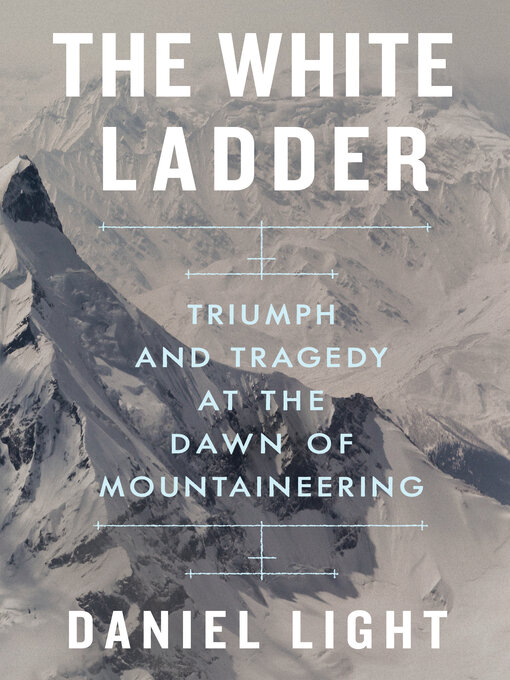A sweeping history of mountaineering before Everest, and the epic human quest to reach the highest places on Earth.
Whether in the name of conquest, science, or the divine, humans across the centuries have had myriad reasons to climb mountains. From the smoking volcanoes of South America to the great snowy ranges of the Himalaya, The White Ladder follows a cast of extraordinary characters—conquistadors and captains, scientists and surveyors, alpinists and adventurers—up the slopes of the world's highest peaks.
A masterpiece of edge-of-your-seat narrative history, The White Ladder describes the epic rise of mountaineering's world altitude record, a story of ever higher climbs by figures great and small of mountaineering during the nineteenth and early twentieth centuries. Daniel Light describes how climbers used revolutionary techniques to launch themselves into the most forbidding conditions. The expeditions illustrate evolutionary changes in climbing style, the advancement of high-altitude science, and the development of mountain climbing as an industry.
Throughout, Light pays special attention to Incan climbers, Gurkha guides, Sherpa mountaineers, and many others who are often overlooked. He offers nuanced new perspectives on familiar characters, for example, calling out the famed female pioneer Fanny Bullock Workman for racism and for abusing her porters. He presents a complex new portrait of notorious occultist Aleister Crowley, who was at once a ruthless expedition leader, but also an innovative strategist who could read mountains and would risk everything trying to climb them. Light also makes bold new arguments about classic debates, for example, arguing that the much-maligned Jewish climber Oscar Eckenstein shaped mountaineering as we know it today.
A story of innovation, invention, and determination, The White Ladder immerses readers in a fascinating historical period. With their breathtaking exploits, these climbers laid the groundwork for the historic ascents of K2 and Everest that came after—and heightened the spectacle of their dangerous sport.


